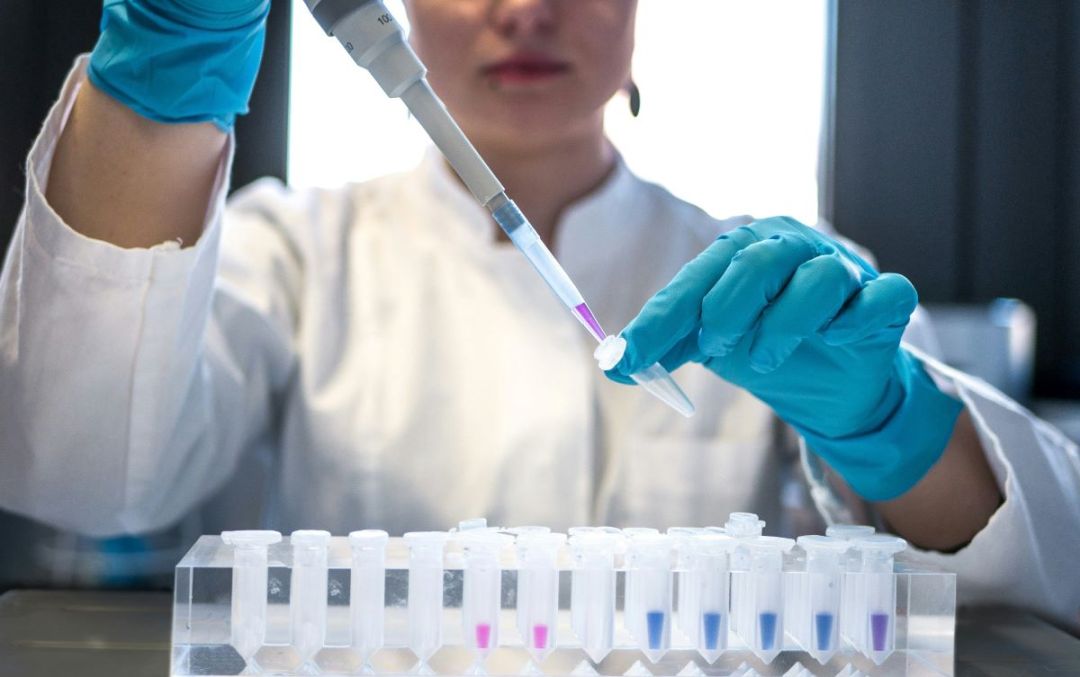Investigating the Potential of Adipotide Peptide in Oncological Research

Sponsored article
Studies suggest that a unique class of experimental peptides known as Adipotide peptide has been developed to specifically target and induce apoptosis in the vasculature of adipose tissues. Although it was first conceived for the context of obesity, its one-of-a-kind mode of action, which involves targeting the blood supply of fatty tissues, suggests tremendous potential for evaluation in oncological studies, notably in anti-angiogenic compounds for cancer research. The biochemistry of Adipotide peptide, its molecular targets, and possible relevance in cancer research are explored in this study. Particular attention is paid to the function that Adipotide peptide may play in interrupting the tumor angiogenesis process.
An Introduction to Adipotide Peptide
The formation of tumors and the spread of those tumors to other parts of the organism depend on angiogenesis, which is the process by which new blood vessels are formed from pre-existing blood vessels. Techniques that block angiogenesis have the potential to impede the course of cancer by depriving tumors of the oxygen and nutrients that are essential for their growth. The synthetic chemical known as Adipotide peptide, developed to disrupt the vasculature of fatty tissue, has recently surfaced as a potential option for repurposing in oncological settings owing to its possible capability of targeting particular vascular receptors.
Mechanism of Action
Adipotide comprises a homing sequence with a special affinity for prohibitin, a protein mostly produced in the endothelial cells of the vasculature of white adipose tissue. Additionally, the peptide contains a synthetic version of a mitochondrial disruptive agent, which, upon cellular internalization, is hypothesized to induce apoptosis. Adipotide’s potential in targeting the vasculature of tumors is highlighted because it is believed to operate via a two-step process, including first targeting and then disrupting.
Adipotide Peptide: Molecular Targets
A substantial part of the control of apoptosis and cell survival is played by the protein known as prohibitin, which is thought to be the principal target of Adipotide. The protein prohibitin is often overexpressed in cancer cells, which contributes to the improved survival mechanisms of tumor cells due to its presence. Adipotide has been hypothesized to use its pathological overexpression against the tumor by binding to prohibitin. This causes apoptosis in the endothelial cells found in the vasculature of the tumor, which may result in secondary necrosis inside the tumor mass owing to a reduction in blood supply.
Research Studies on Adipotide Peptide
It has been suggested via preclinical research on murine models that Adipotide may lower the number of tumors by selectively targeting the vasculature connected with the tumor. According to the findings of this research, the peptide seems to interfere with metabolic activity, reduce the number of angiogenic indicators that are present inside the tumor, and may eventually contribute to the regression of the tumor without, apparently, inducing any direct harmful effects on the tumor cells themselves.
Adipotide Peptide and Anti-Angiogenic Disorders
Research indicates that because solid tumors may be dependent on angiogenesis, the mechanism of Adipotide may provide a supplementary approach to the anti-angiogenic compounds that are already available. These approaches are theorized to block the vascular endothelial growth factor (VEGF) pathway predominantly. By adding a tool that operates on a distinct receptor, Adipotide is speculated to have the potential to improve the effectiveness of combination research and may assist in overcoming resistance to anti-angiogenic compounds that are given as a single agent.
Future Research Directions
In oncological studies, investigations purport that Adipotide may improve overall findings when combined with other compounds, especially those with cytotoxic or altered immune responses. In addition, gaining knowledge of the pathways and molecular processes that Adipotide may influence may result in the creation of novel biomarkers that might be used to identify potential responses to control compounds and monitor their effectiveness.
When it comes to experimental development, there are challenges and considerations. Even though the preclinical studies are encouraging, several obstacles remain to overcome before these findings may be explored further in experimental settings. Important aspects that need in-depth research include:
- The specificity of Adipotide for prohibitin.
- The pharmacokinetic features of the compound.
Furthermore, to establish an alternative for Adipotide, it will be essential to have a comprehensive knowledge of its long-term impact on the vasculature of normal tissue.
Adipotide Peptide: Concluding Remarks
Findings imply that Adipotide peptide may be a potentially fruitful pathway in the context of cancer, especially with anti-angiogenic research techniques. Because of its alleged one-of-a-kind targeting mechanism, it has been hypothesized to supplement the existing approaches and maybe enhance the mitigation of solid tumors. Continued research and experimental assessments will be necessary to evaluate whether or not it is unassailable and practical for further oncological study.
If you are a scientist wondering where to buy research peptides, we advise you to visit the Biotech Peptides website for the highest quality and most affordable research compounds available. Remember that the substances discussed in this paper have not been approved for human or animal consumption. This article serves educational purposes only.
References
[i] Hossen N, Kajimoto K, Akita H, Hyodo M, Harashima H. A comparative study between nanoparticle-targeted therapeutics and bioconjugates as obesity medication. J Control Release. 2013 Oct 28;171(2):104-12. doi: 10.1016/j.jconrel.2013.07.013. Epub 2013 Jul 18. PMID: 23871959.
[ii] Criscione L. Comment on “a peptidomimetic targeting white fat causes weight loss and improved insulin resistance in obese monkeys”. Sci Transl Med. 2012 Apr 25;4(131):131le2; author reply 131lr2. doi: 10.1126/scitranslmed.3003760. PMID: 22539771.
[iii] Kim, Dong-Hoon et al. “Rapid and weight-independent improvement of glucose tolerance induced by a peptide designed to elicit apoptosis in adipose tissue endothelium.” Diabetes vol. 61,9 (2012): 2299-310. doi:10.2337/db11-1579. https://pubmed.ncbi.nlm.nih.gov/22733798/
[iv] Melissa H., Cancer treatment shows promise for rapid weight loss, Los Angeles Times, 10 Nov 2011. https://www.latimes.com/local/la-xpm-2011-nov-10-la-he-drug-fat-loss-20111110-story.html
[v] Kolonin, Mikhail G et al. “Reversal of obesity by targeted ablation of adipose tissue.” Nature medicine vol. 10,6 (2004): 625-32. https://pubmed.ncbi.nlm.nih.gov/15133506/







